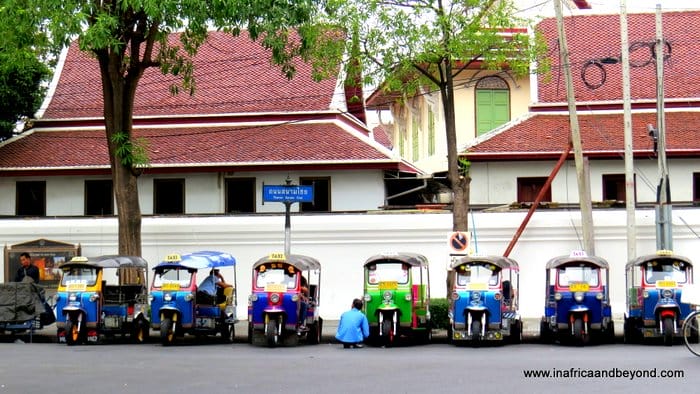
Traveling is an exhilarating experience that broadens your horizons and exposes you to new cultures, foods, and perspectives. However, it also comes with its fair share of risks, including the possibility of falling victim to scams. Whether you're road-tripping through Europe, exploring the bustling streets of Bangkok, or lounging on a beach in Rio De Janeiro, it's essential to be vigilant. Here’s a comprehensive guide to help you avoid scams and enjoy your travels safely.
One of the best ways to avoid scams is to do your homework before you set off. Research your destination thoroughly to understand common scams specific to that area. Websites, travel blogs, and forums are excellent resources for this kind of information. For instance, in some cities, taxi scams are prevalent, while in others, you might need to be wary of pickpockets.
Familiarize yourself with common scams that travellers face. Here are a few examples:
In some countries, scammers pose as police officers and ask to see your passport or wallet. They might claim you need to pay a fine on the spot. Always ask for identification and insist on accompanying them to the nearest police station if necessary.
Some taxi drivers inflate fares or take longer routes to increase the cost, or they may claim that their meter is broken and overcharge you for the ride. To avoid this, use reputable taxi services or rideshare apps like Uber. If these are not available, insist on finding a taxi with a working meter or agree on a fixed fare before starting the journey.

Tuk tuks in Bangkok
Pickpockets often work in teams where one person distracts you while another steals your belongings. Stay vigilant in crowded places and keep your valuables secure.
Beware of people offering free bracelets, flowers, or other items. Once you accept, they may demand payment or follow you until you give them money.
Scammers install devices on ATMs to steal your card information and PIN. Always check the ATM for any unusual attachments before using it.
Touts may tell you that a popular attraction is closed and offer to take you to an alternative. Stick to official sources for information on closures.
Be cautious when buying tickets from street vendors or unofficial sources. Verify the authenticity of tickets before making a purchase.
Some scammers pose as tour guides and charge exorbitant fees for subpar services. Research reputable tour companies in advance.
Be wary of individuals offering to exchange currency at rates that seem too good to be true. Use official exchange services or banks.
Be cautious of strangers offering unsolicited help, especially in crowded tourist areas. They may expect payment for their assistance.
Watch out for scams where individuals pose as hotel staff and try to gain access to your room under false pretences. Always verify the identity of hotel staff before letting them in.
Some beggars may use elaborate stories to evoke sympathy and trick you into giving them money. Be discerning in your charitable giving and consider donating to reputable local charities instead.
Technology can be your best friend when it comes to avoiding scams.
Always check reviews for hotels, restaurants, and tour companies. If a deal seems too good to be true, it probably is.
Never share personal information like your passport number, bank details, or home address unless absolutely necessary and only with trusted entities.
Avoid using public Wi-Fi for financial transactions or checking sensitive information. Use a Virtual Private Network (VPN) if you need to access secure sites. For an added layer of protection, especially when accessing the internet in high-risk locations, cloud-based security tools can help prevent connections to malicious domains and phishing attempts even before they reach your device.
Keep in touch with family or friends back home. Share your itinerary with them so they know where you’re supposed to be at all times. In case something goes wrong, they can help alert local authorities or consulates.
If something feels off, trust your gut. Scammers often rely on people’s reluctance to appear rude or untrusting. It's okay to say no and walk away if you're uncomfortable.
Secure your belongings to minimize the risk of theft.
Learning a few basic phrases in the local language can go a long way in helping you navigate tricky situations. Phrases like “No, thank you,” “Help,” and “Police” can be particularly useful.
Travel scams can put a damper on your adventures, but with a little preparation and vigilance, you can avoid them and enjoy your trip safely. Remember to research your destination, use technology wisely, trust your instincts, and always stay aware of your surroundings. Safe travels!
Read about the scams we experienced in Azerbaijan.


Sara Essop is a travel blogger and writer based in South Africa. She writes about family travel and experiences around the world. Although she has been to 50 countries thus far, she especially loves showcasing her beautiful country and is a certified South Africa Specialist.
This is so helpful. Wish there was more information out there like this.
It's important for travellers to be aware of these scams to avoid falling prey to them.
It is rather scary about all the scams that happen when you travel. I hate to be mistrustful but you really have to be hyper aware, especially with ATMS, pickpockets and mass transportation.
I faced the hotel room scam during my trip to Azerbaijan. It actually can spoil the entire trip.
We experienced accommodation scams in Azerbaijan too and it was unpleasant.